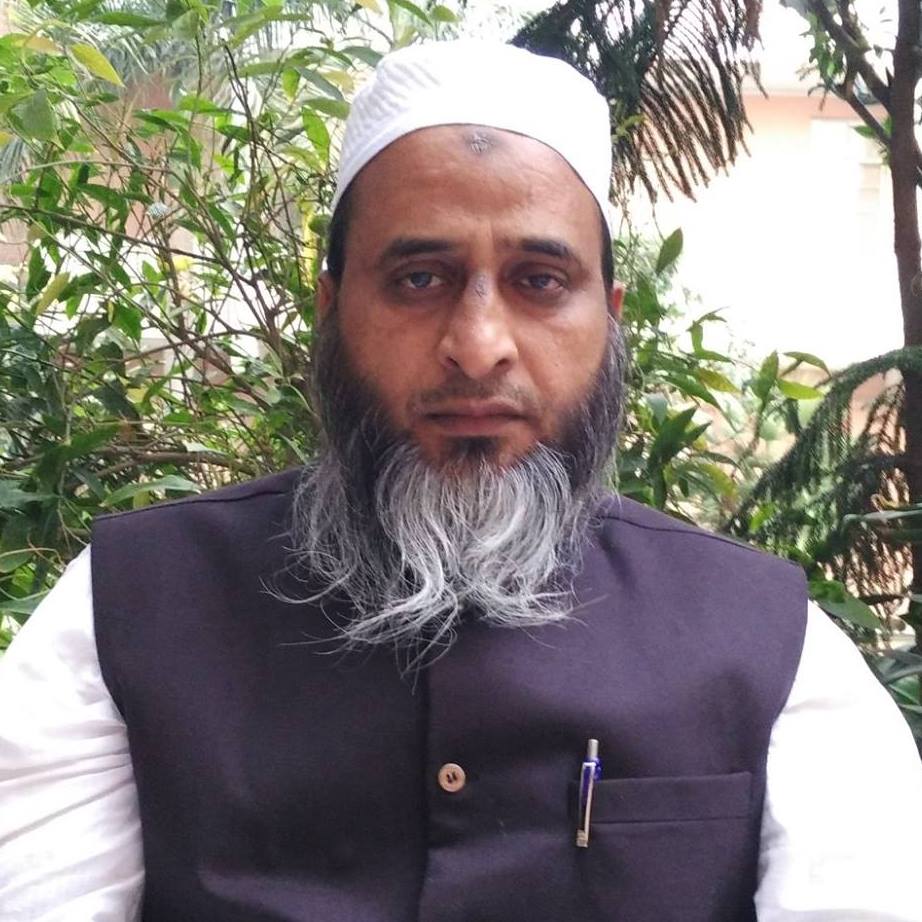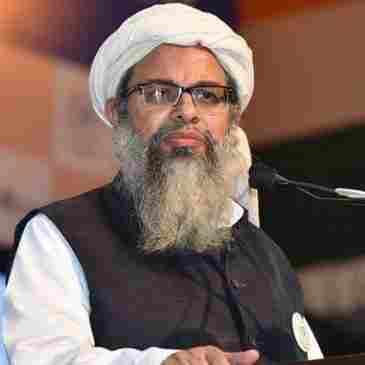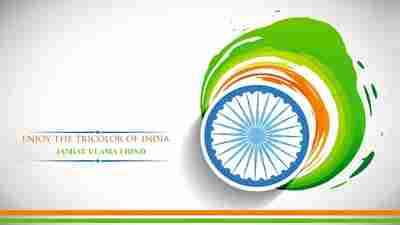About Us
OUR TEAM

Maulana Muhammad Hakkimudeen Qasimi
General Secretary of Jamiat Ulama-i-Hind
Mohammad Hakimuddin Qasmi was born on 15 August 1967 in Pratapgarh, Uttar Pradesh. He graduated from Darul Uloom Deoband

Maulana Syed Mahmood Madani
President of Jamiat Ulama-i-Hind
Maulana Mahmood Madani, famous religious scholar and active leader of Jamiat Ulama-i-Hind. He has distinguished himself over the years as the most vocal supporter of unity in diversity. It is this impeccable part of legacy that he inherited from his ancestors, namely Maulana Hussain Ahmad Madani, the proponent of composite nationalism. Following the footsteps of his fore fathers he does not only believe in but has been actively campaigning for ‘Hindu-Muslim unity’ echoing the message of Maulana Hussain Ahmad Madani as he said in 1924 in his address to the Jamiat Ulama-i Hind conference, ‘Hindu-Muslim unity is a pre-requisite for [the] freedom of India.’’
He firmly believed that Muslim minority could be fully integrated, with complete social cohesion, within a majority non-Muslim community, without being considered as disloyal to their faith or disloyal to their compatriots. Thus Maulana Mahmood Madani is the modern day flag bearer of composite nationalism.

Maulana Mohammed Ibrahim
President of Jamiat Ulama-i-Hind, Kerala
Moulana Mohammed Ibrahim is the the son of Marhoom Hafiz Uvais Haji & Grandson of Zubair Haji , Founder of Jamiathul Kauzariyya Arabic College & the close friend of Marhoom Moosa Moulana who started the effort of Tableegh in Kerala. Now Maulana Mohammed Ibrahim is the Principal of the institution too. The first Sanad distribution at this Madrasa was held on 1981 January 24.
At present, around 200 students are studying in madrasa, under the supervision of Moulana Muhammad Ibrahim. This Madrasa contributed to the qualification of hundreds of Ulama -e-kiram in the recent years.
He is also the Managing Director of the chain of companies under the brand name of “Mayfield”
He is a multi Talented Islamic Scholar who is also a successful bussiness man, Social Welfare Worker, Religious Daa’ee who conveys the message of Islam
JAMIAT ULAMA I HIND
Kerala Team
⦁ MOULANA HAFIZ MOHAMMED IBRAHIM (President)
⦁ MOULANA ABDUL SAMAD KAUSARI (Vice President)
⦁ MOULANA YUSUF SAHIB NEDUMANGAD (Vice President)
⦁ MOULANA ASHARAF NAJMI EDATHALA (Vice President)
⦁ ADV RAFEEQ SAHIB CHERANALLOOR (Vice President)
⦁ MOULANA MUJEEB SAHIB NILAMBOOR (General Secretary)
⦁ MOULANA NOUFAL KAUSARI (Join Secretary)
⦁ ABDUL SATHAR MOULAVI PARAKOD (Join Secretary)
⦁ MOULANA TALHA SAIT KOCHI (Treasurer)
⦁ HAJI AFZAL SAIT
⦁ MUFTI RAJEEB QASIMI
⦁ ADV SHIHABUDHEEN SAHIB
⦁ MUFTI MUZZAMMIL MOULAVI, MANJERI
⦁ MUFTI ABDUSALAM MOULAVI, KOLLAM
⦁ MOULANA MUHAMMED BILAL
⦁ MUFTI REJA MOULAVI
⦁ HAFIZ DR. AHMED ZAKIR
⦁ MOULANA FAHRUDHEEN, PALAKKAD
⦁ MOULANA SUHAIB SAIT
⦁ HAJI BILAL SAIT
⦁ MUFTI TWAYYIB MOULAVI, EDATHALA
Aim & Objectives
- Protection of Islamic beliefs, identity, heritage and places of worship.
- Securing and safeguarding the civil, religious, cultural and educational rights of Muslims.
- Social, educational and religious reform among Muslims.
- Establishment of institutions for progress and stability in educational, cultural, economic and social affairs of Muslims.
- Fostering and stabilizing amicable relations between different communities living in the Union of India, in accordance with the teachings of Islam.
- Revival of Arabic and Islamic studies and framing syllabus and curriculum according to needs of the present age.
- Dissemination and propagation of the teachings of Islam.
- Management and protection of Islamic Aukaf.
HISTORY & FOUNDERS
Jamiat-Ulama-i-Hind, though formally launched in 1919, was inheritor of a rich legacy dating back to early 18th century when Shah Waliullah of Delhi led a revolution to change the whole system by drawing attention of people to the depredations of European imperialism, degeneration and corruption among oriental rulers.
During 1808 to 1915 the Ulama (Islamic Scholars) of his legacy fought organized battles against the mighty British for the freedom of the country. The edict issued by Shah Abdul Aziz Dehlawi “Our country has been enslaved. To struggle for independence and to put an end to slavery is our duty.” Provided the impetus for raising up arms against imperialist forces by prominent Ulamas like Haji Imdadullah Mohajir Makki and his close disciples Maulana Qasim Nanotavi, Maulana Rashid Ahmad Gangohi and Hafiz Zamin Shaheed.

Ulama the main target of British Oppression
After the defeat of 1857 revolt Ulama were the main target of the British oppression. Maulvi and rebel had become synonymous in their eyes. Of the 200,000 people martyred during the revolt 51,200 were Ulamas. Edward Timus himself admitted that in Delhi alone 500 Ulamas were hanged. Between 1864 and 1871 there were five major sedition cases against the Ulama which are known as “the Wahabi Cases” and the “Ambala Conspiracy Case”. In all these cases the accused were either sentenced to death or to life imprisonment.
Jamiat Ulama-i-Hind a step forward from armed resistance to Non-violent struggle:
The Ulamas started their struggle with armed resistance, but repeated failure in such attempts motivated them to revise their approach and adopt a new strategy. Particularly the failure of Silk Letter conspiracy in 1916 and arrest of 222 Ulamas, prominent amongst them, Shaikhul Hind Maulana Mahmood Hassan and his disciple Maulana Husain Ahmad Madani, along with Maulana Obaidullah Sindhi, Maulana Abul Kalam Azad, Khan Abdul Ghaffar Khan and others forced them to restructure their strategy for resistance opting for non-violent struggle for freedom with the support and cooperation of their fellow countrymen.
Herald of new era in freedom struggle and Birth of Jamiat Ulama-i-Hind
In November 1919, the revolutionary Ulama under the leadership of Shaikhul Hind Maulana Mahmood Hasan, on the occasion of the Khilafat conference held at Delhi, resolved to constitute a new organization for carrying on non-violent freedom struggle in cooperation with fellow countrymen. The organization was designated as ‘Jamiat Ulama-i-Hind’. Mufti-e-Azam, Maulana Kifayatullah was elected as the first President. The establishment of the organization was a decisive turning point in their revolutionary movement. They gave up armed struggle and chose non-violent struggle and adopted non-co-operation. That strategy eventually led to freedom of the country.
ROLE IN PRE-INDEPENDENCE INDIA
First Conference
The first conference of the Jamiat was held at Amritsar on December 28, 1919 chaired by Maulana Abdul Bari of Farangi Mahal to lodge protest against the continued imprisonment of Shaikhul Hind and Maulana Azad.
Non-Cooperation Movement
Following the resolution of Non-cooperation adopted by Allahabad conference in June 1920. The movement was formally launched on August 31, 1920.
Fatwa on Non-Cooperation Movement
On July 19, 1920 Shaikhul Hind issued a fatwa in favour of non-cooperation which was reconfirmed by 500 Ulamas. The leaders and workers of Khilafat committee and the congress went into struggle against imperialism armed with this fatwa. The British Govt. seized it.
Foundation of Jamia Millia Islamia:
On October 29, 1920 Shaikhul Hind laid the foundation of Jamia Millia Islamia.
Imprisonment of Jamiat Leaders:
At the Karachi Khilafat conference in July 1921, the call of non-cooperation given by Maulana Hussain Ahmad Madani caused his imprisonment along with Maulana Mohammad Ali Jauhar, Maulana Shaukat Ali, Dr. Kitchlew and Jagatguru Shnkar Acharya.
Boycott of foreign goods
Resolution of boycott of foreign goods was passed by Jamiat conference in Nov. 1921 under the leadership of Maulana Abul Kalam Azad.
- Relief to Mopillas of Malabar
- Boycott of Assemblies (December 1922)
- Call for complete independence by Maulana Hussain Ahmad Madani (January 1924)
- Jamiat was the first to declare boycott of the Simon Commission (December 1927)
- Participation in all parties conference at Lucknow and rejection of Nehru Report (1928)
- Cooperation with congress (Amroha conference, May 1930)
- Civil Disobedience Movement wherefore prominent leaders of Jamiat were imprisoned (1930)
- Opposition to the infamous Sharda Act for it interference in Muslim Personal Law.
Composite nationalism and theory of territorial Nationhood
Maulana Syed Hussain Ahmad Madani advocated the idea of composite nationalism and joint struggle of all religious communities against the British and justified inter-communal unity and cooperation on the basis of the Quran and the Hadith. At a time when ideas of religion based nationalism were being advocated by the Hindu Mahasabha and the Muslim League. Maulana Hussain Ahmad Madani advanced “the theory of territorial national hood” saying that it is “not necessary that a nation, to be a nation, should share the same religion and culture”. Now a days he said, “nations are made by homelands.”
Maulana Madani and the Ulama like him have been described by Peter Haardy as representing “a sea change in the kind of assumptions Ulama were wont to make about the nature of solidarity of the Islamic community.”
Declaration of non-cooperation in the war effort (world war II, 1939-45).
Complete Independence
In the Jamiat Ulama Moradabad conference held at Bachhraon (April 23-25, 1940) Maulana Hussain Ahmad Madani raised the question of Indian independence. As a result he was arrested and imprisoned in Naini Jail.
Quit India
On August 5, 1942 Jamiat gave a call to the British to quit India. Thereafter on August 9 the Bombay session of the Congress passed the famous Quit India resolution which led to the arrest and incarceration of the Congress and the Jamiat leaders.
Opposition to the idea of Pakistan
After 1942, Jamiat Ulama resolutely opposed the idea of Pakistan and its leaders especially Maulana Hussain Ahmad Madani were victims of Muslim League violence.
In 1945 at the 14th conference the Jamiat passed its alternative formula for partition.
Jamiat’s Role in Post Independence India
Before independence it’s main goal was to struggle for freedom of India. After realization of that goal it concentrated upon the religio-socio-economic as well as educational uplift of Indian Muslims.
Post partition riots
The frightful wave of riots that attended upon partition swept through Punjab, Himachal, Delhi, Haryana, West U.P., Bihar etc. demoralized the Muslims. In that situation, it was the death-defying courage of the Jamiat leaders that restored the confidence of Muslims in India.
Lucknow Conference
In those very turbulent times that Jamiat called a conference in Lucknow which is unprecedented in significance. It not only gave courage to the demoralised community but also declared abdication from politics.
Secularism
In the post independence period the Jamiat made notable contribution towards making India secular state and framing a secular Constitution.
Protection of minorities
Provisions in the Constitution for protection of minorities, and special facilities for their development, are the fruits of the labours put in by the Jamiat General Secretary, Maulana Hifzur Rahman in his capacity as a member of the Constituent Assembly.
Muslim Aukaf
In 1951 the draft of a Bill for protection of Muslim Aukaf was presented in the Parliament through Mr. Mohammad Ahmad Kazmi. The Bill was passed on March 13, 1953.
Relief to communal riots victims
The Jamiat has been active in providing relief and getting justice for the victims of communal riots that have occurred from time to time.
Communal violence
Maulana Hifzur Rahman and Maulana As’ad Madani energetically raised the problem of communalism and communal violence in the parliament.
Conventions
With the objective of checking the growth and spread of communal violence Maulana Hifzur Rahman convened a Muslim Convention in 1961 and Maulana As’ad Madani organized Democratic Convention (1964) and an Anti Communal Convention (1991) which yielded positive results. It was followed by a much larger Convention under same issue on 12th February 1993.
Save the country movement
To defeat the forces of communal fascism Maulana As’ad Madani launched the “Save the country and community” movement in 1979. In its first phase (July 9-25) 2, 226 people courted arrest and in the second phase (October 2-15) 4, 611 people went to jail.
Qadiani blasphemy
To counter Qadiani blasphemous activities in India Maulana Syed As’ad Madani convened a grand conference to highlight the concept of the finality of Prophet hood at Urdu park, in front of Shahjahani Jama Masjid on June 14, 1997.
Bill against religious places
The Bill introduced by U.P. Govt. interfering with the Constitutional right of freedom of religion was effectively opposed by JUH culminating into unprecedented mass rally held at Ram Lila Ground, New Delhi on 13th May 2000.